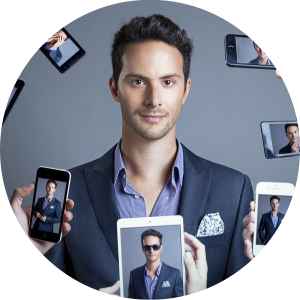
South by Southwest or SXSW is a Conferences held in Austin in mid-March. The live performances, screenings and interactive projects of the event bring more than a hundred thousand visitors to the capital of Texas every year.
Startup Village debuted at South by Southwest in 2012. The conference consists of start-up competitions, networking events and panel sessions covering topics like funding and entrepreneurial best practices. It also features pitches from some of the most forward-thinking startups from around the world.
This important startup conference is organized by Chris Valentine who produces SXSW Startup Village. We sat down with Chris during the 2016 festival to talk about upcoming trends, and the possibilities provided by virtual reality and big data.
The first part of our interview focuses on VR and augmented reality, while the second part, which will be published next week, is about business intelligence and personalization.
– Why did you decide to work on organizing the SXSW Startup Village?
I love the startup ecosystem and the startup world, and with SXSW, it was an incredible opportunity to find the way to bring the highest level of influencers and the highest level of startups into one place in Austin, Texas. By doing these kinds of programs I get a chance to be around smart people, smarter than me…
– What are the fascinating trends in this year’s event?
The big trends coming out right now I think would be health-related technologies and virtual reality. People are probably going to talk the most about VR and AR.
It’s already kind of happening, but here you can see it from the best retrospective, all over the country. SXSW can show how AR and VR are going to be used in ways that are not related to just gaming. For example, it could be used as an educational tool or as a training tool for companies and it could be used by doctors too.
There are all these different ways that it can be used, and I think that’s what started to creep into the public consciousness on a higher level. Because if it’s just gaming, at some point you’re going to be like, “I’m not a gamer so I’m not interested,” but if you’re telling me I can use it for this or for that, it’s a whole new different level…
– It’s very exciting to see VR and where it’s going and we don’t know yet where it will end up…
I completely agree with you and I think there are so many possibilities. Just think about like you have a fear of heights and you have the ability to work with a professional, who can actually stop your fear of heights with a VR experience in 3-4 months.
Or think about surgeons. They have to go to conferences and do certain types of classes to keep up their certifications. But what if they could have real-life experiences?
We had a company at SXSW Accelerator called NeuroDigital Technologies and they developed a haptic glove. With that, you could actually feel. If I touch this with my hand, or if I touch the grass I know how it actually feels, but that’s a real experience. If you had this glove, you could actually touch this and have the almost same experience. Now, if you’re a surgeon and you could practice a cut with this glove in VR…
Or think about from this perspective.
So I love European soccer, that’s my sports choice. I specifically like the English Premier League.
If you’re a goalie, at some point you’re not going to be able to practice because of physical exhaustion. But with the headset and the glove you could just go into the room, sit there and do that.
What you always hear from the coaches is that nothing can simulate a real game experience. Younger players who are new to the system always say that it’s much stronger, must faster and much quicker than they ever thought.
But if you’re 18 years old and you play your first game after spending six months with this VR simulation you’re going to have a sense of speed. You’re still going to have a learning curve, but it will be much quicker to potential success.
And there’s another part. The VR practice could also tell the club if a player is struggling and he can’t seem to advance fast enough, so they need to move him somewhere else, you know, off the club or down the bench. They could make a decision quicker in a fully different way.
But forget the games, just think about it… You have clubs making million dollar decisions; you have surgeons, they cut you open because you injured your knee. It’s a new procedure but they’ve already done it 20 times through VR, how much more confidence do you feel when they’re doing surgery on your knee open, as opposed to, “Oh, I’ve been reading about it for six months, and I’ve been to a handful of seminars”? And at some point, you’ve got to be the first one under the knife.
This article continues on the next page. Click here to keep on reading.





1 comment
Write a comment